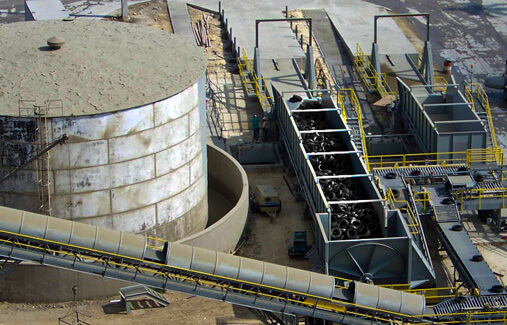Tire-Derived Fuel

What is Tire-Derived Fuel?
Tire-derived fuel (TDF) is made of shredded end-of-life tires and is mixed with other energy sources in industrial settings. The U.S. Environmental Protection Agency recognizes TDF as a viable alternative to fossil fuels and prefers using tires as energy as opposed to disposing them in landfills. Tire-derived fuel is usually customized by tire size and wire content to meet a customer’s fuel specifications. TDF is often selected as a supplemental energy source because it emits lower carbon emissions than coal, natural gas and petroleum coke, and is more cost-effective with its high BTU value.

An Economical, Cleaner Alternative to Fossil Fuels
Tire-derived fuel is ideal for cement kilns, pulp and paper mills, steel mills, power plants, industrial boilers and pyrolysis plants due to its high heat value, beneficial use of scrap tires and lower carbon emissions than fossil fuels.
For instance, the EPA has found that tire-derived fuel offers a higher BTU value than coal, and only one ton of TDF is needed to replace one and one-half tons of coal. Plus, using tires as fuel produces lower nitrogen oxide emissions, which is important for organizations searching for opportunities to lower their greenhouse gas output
Because tires can be shredded into various sizes, Liberty Tire Recycling can easily create traditional sizes that mirror the size of coal and work in existing delivery systems and boilers. To meet specific needs, our TDF can be tested for size, combustion value and BTU value through lab testing
Our TDF offers manufacturers and power generators:
- Improved greenhouse gas emissions in most situations
- A predictable thermal profile and high BTU value
- Near-zero bottom ash production
- No leachate from storage
- A mercury-free fuel
- Customizable options based on fuel specifications, from whole tires to mesh sizes
- A more sustainable option since it is made from 100% recycled tires
- Cost-savings
Did You Know?
The EPA recognizes tire-derived fuel as a viable alternative to fossil fuels and prefers using tires as energy over disposing them in landfills. EPA testing also showed TDF has a higher BTU value than coal and the EPA supports the responsible use of tires as fuel in kilns and other industrial facilities.
Why Tire-Derived Fuel is Better
Due to its high BTU value, beneficial use of a scrap tire and other benefits, TDF is perfect for those trying to minimize fossil fuel consumption.
| Tire-Derived Fuel | Coal | Natural Gas | Petroleum Coke | |
|---|---|---|---|---|
| Emits less nitrogen oxide (a greenhouse gas) | Y | N | N | N |
| Virtually zero bottom ash production | Y | N | N | N |
| No leachate from storage |
Y | N | N | N |
| Mercury-free | Y | N | N | N |
| Predictable thermal profile | Y | N | N | N |
| Customizable | Y | N | N | N |
| Removes tires from landfills | Y | N | N | N |
| Cost savings | Y | N | N | N |
Research Studies
Liberty Tire Recycling stays up to date on the latest news and research to advance environmental and personal safety.




